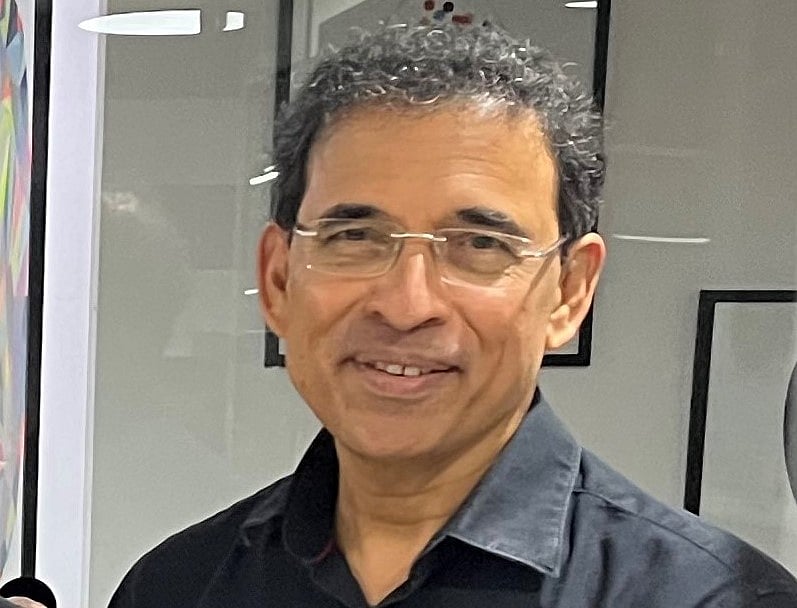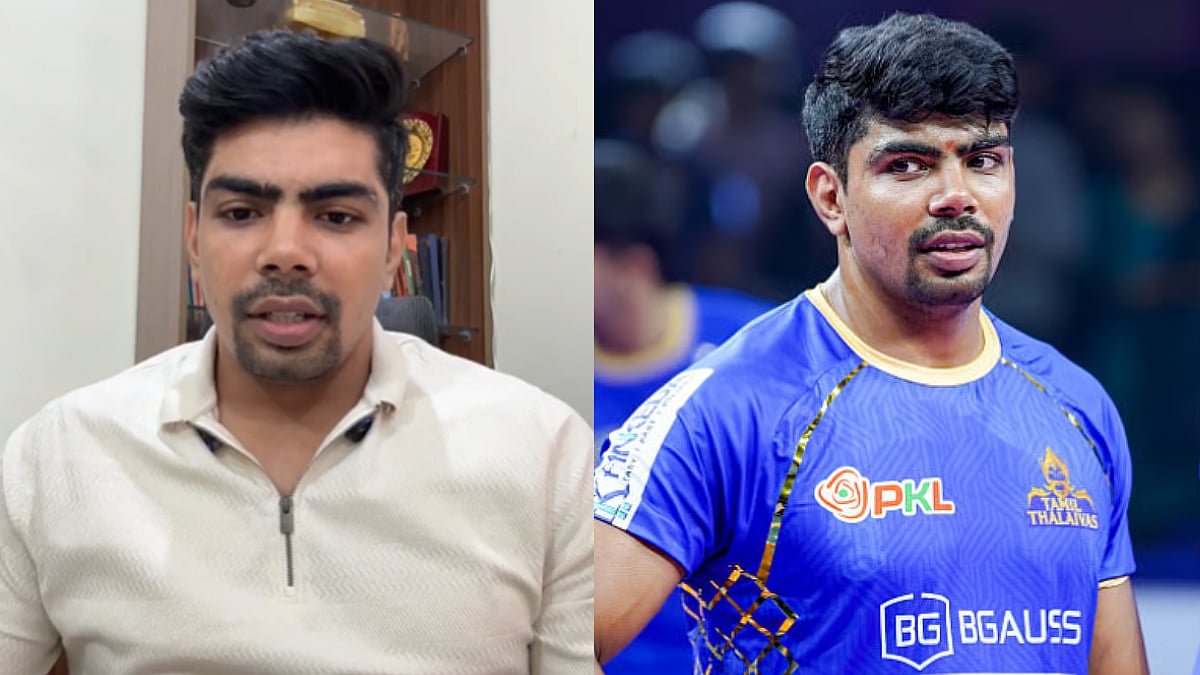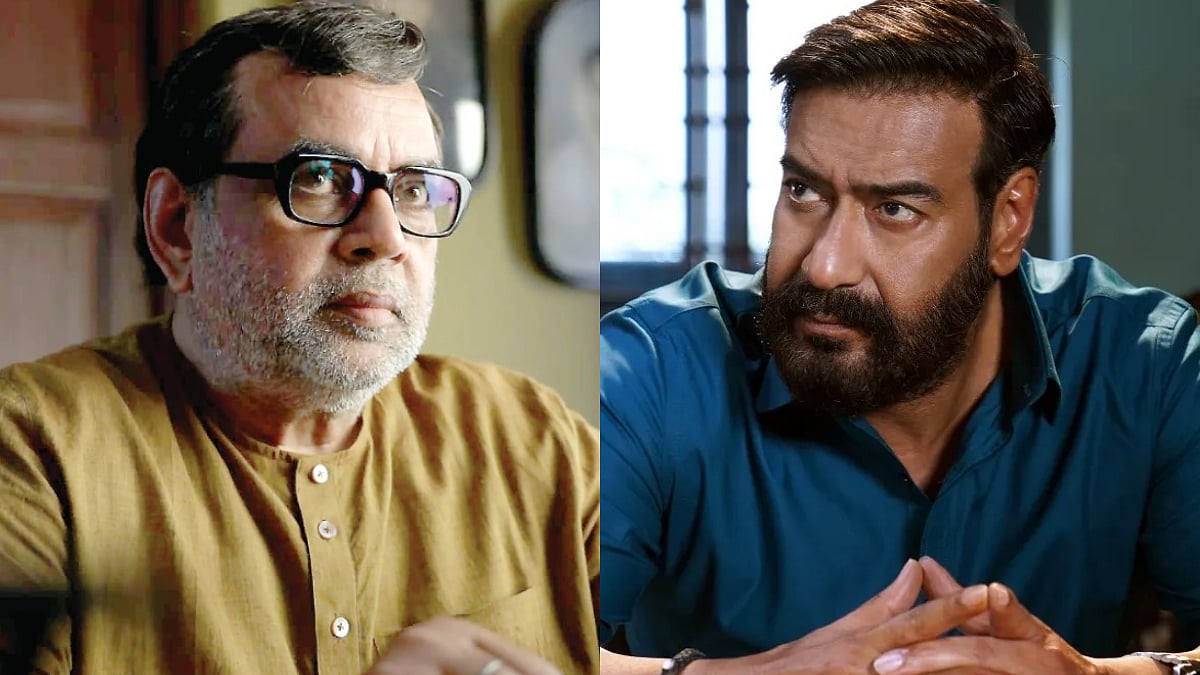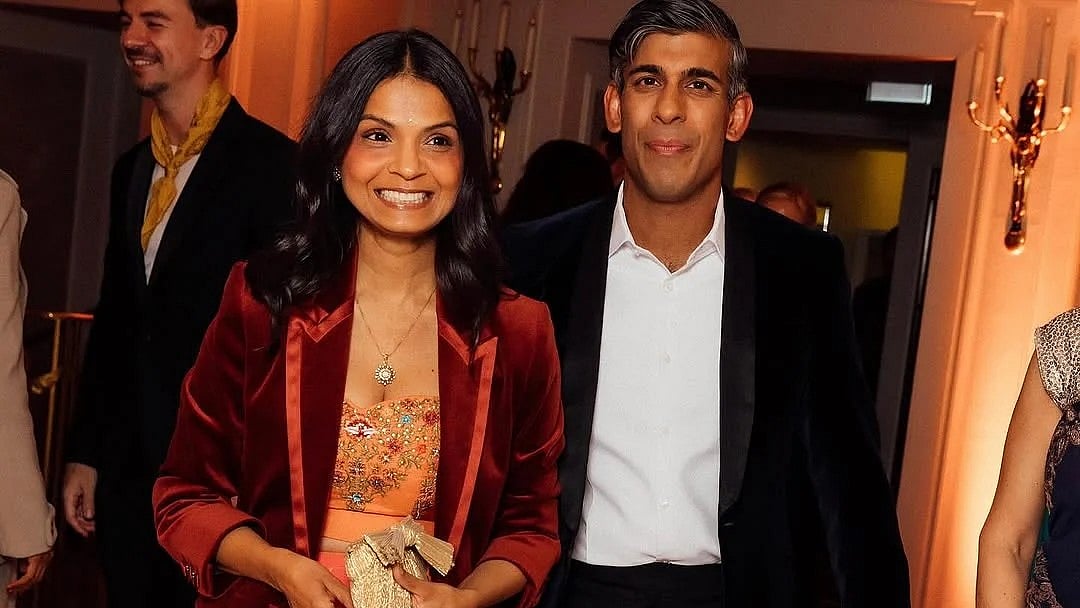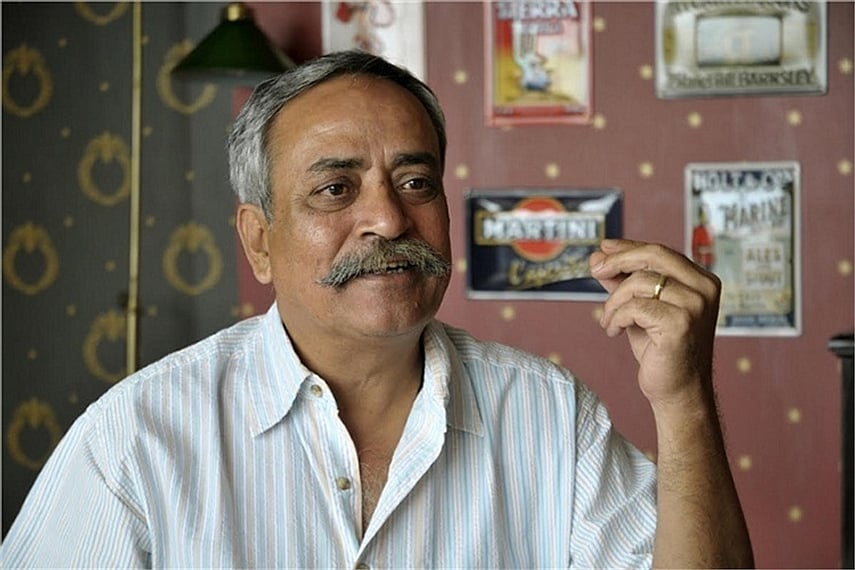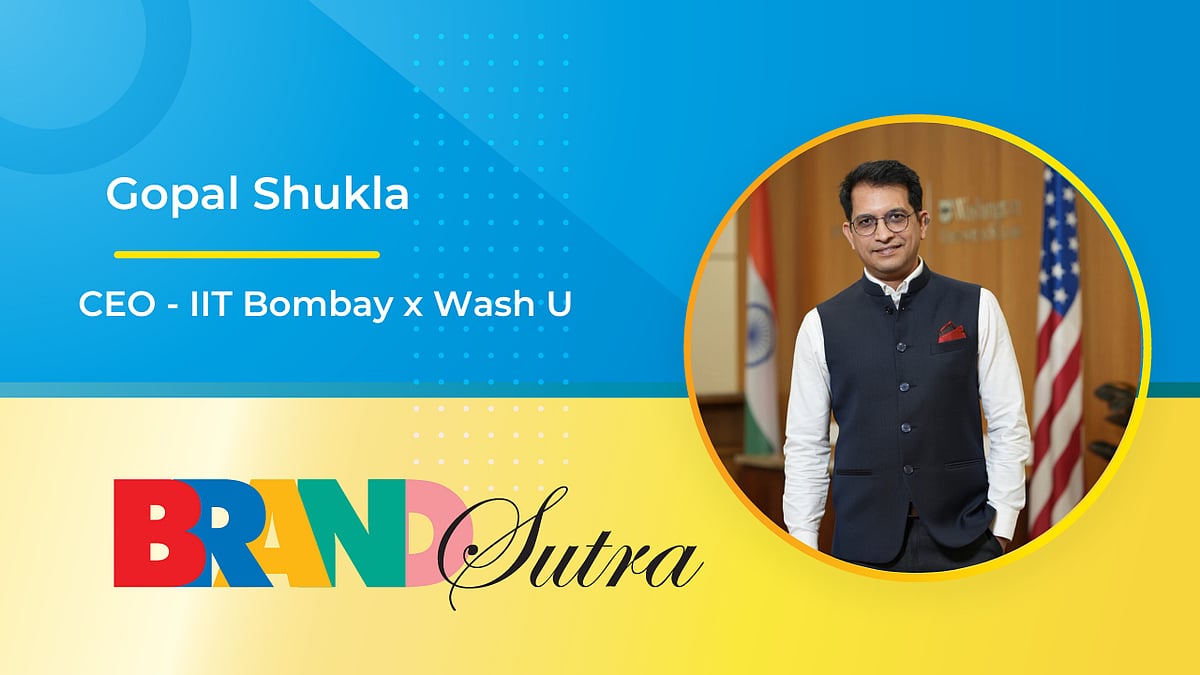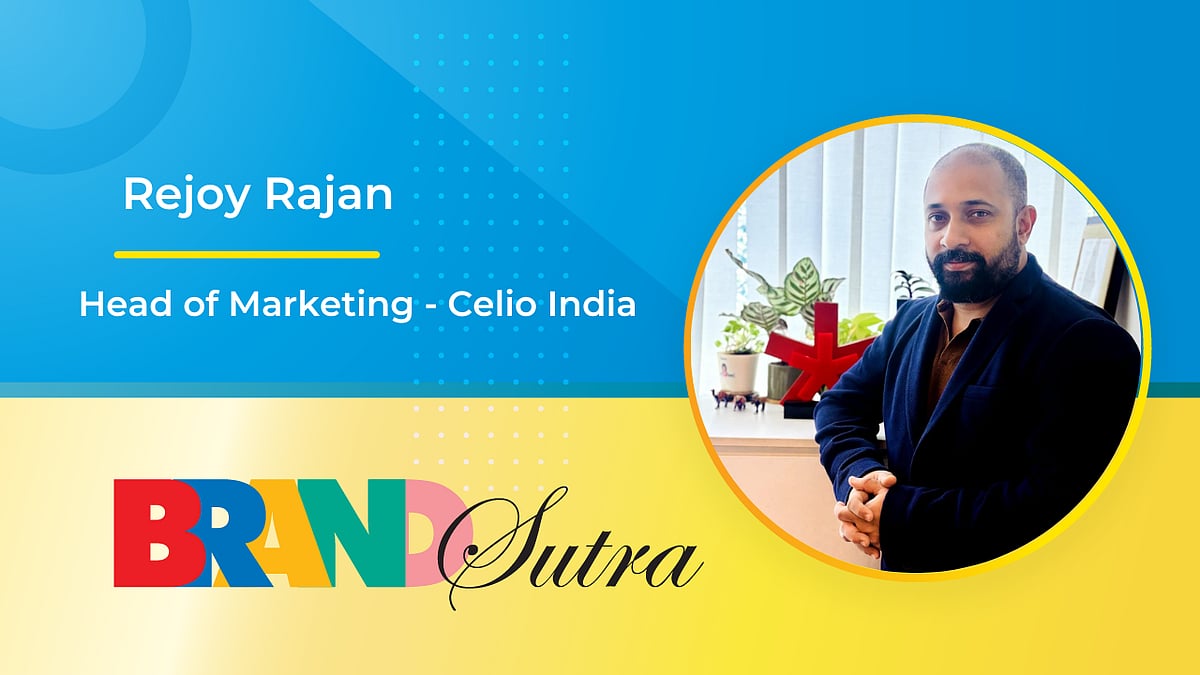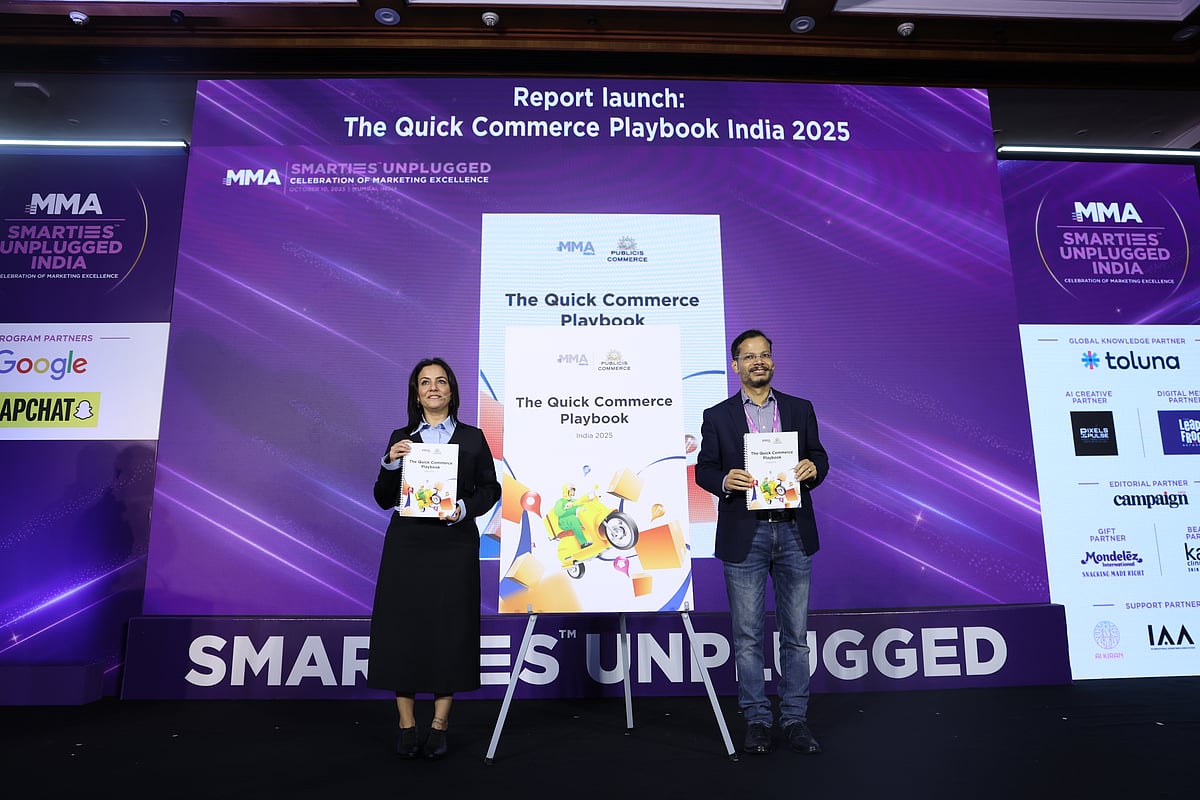As a kid who wanted to get into advertising, one of the ads that impressed me was the Garden Sarees commercial where the model is on a swing. I was a student of Chemical Engineering in Hyderabad and through some curious configuration of the planets, I got into IIM Ahmedabad, but all along, I wanted to work at the agency that made these memorable ads for Garden Sarees, Jenson & Nicholson (‘whenever you see colour, think of us’).
In those days, ads only had a key number and not the name of the agency. I didn't know it was Rediffusion. The line that did it for me was ‘The dawn in every man’s life is touched by a Savage experience’ in the ad for Savage blades. I want to work in this place, I told myself, but I did not know how.
Luckily, at IIM Ahmedabad, Ashok Bijapurkar taught us advertising and I began pestering him. Finally, he got me an interview with Rediffusion. Now, the best thing you do when you want something badly is to keep it at an arm's length, and wait for it to come to you, rather than go towards it. But I wanted it too badly and I screwed up my interview completely.
After a while, I got a call in my dorm saying ‘Aapko placement office mein bulaya hai’. There, Bijapurkar and Ajit Balakrishnan asked me ‘What happened today?’ I said ‘Sorry, I screwed up. I wanted it too badly’.
That day, I learnt my first lesson in life: When you want something too badly, then you are more likely to make mistakes. They gave me the job on condition that I would never do an interview as badly as that one!
I remember Balakrishnan had come to IIM Ahmedabad wearing a grey round-neck T-shirt, whereas everybody else was in ties and jackets, walking around pretending to be someone else! I thought how cool is that! I want to work at this agency. And luckily, I did. Those two-and-a-half years at Rediffusion were some of the best times of my life.
IT'S NOT A GLAMOUR BUSINESS
I knew what I was getting into, because people thought advertising was a glamour business. Truth be told, to some extent, advertising was posh in those days. Advertising was English. If you want to do an ad in Hindi and went to Kamlesh Pandey and pleaded with him, he would say ‘Woh Hindi translator hai na - unse translate karwa lena’.
So Bush’s campaign ‘Tall dark, handsome and No. 1. -the Bush Baron, the largest single model’ got translated into Marathi as ‘Uncha, savla dekhna aani number ek’!
I knew I wasn't joining the glamour industry because I had come to Mumbai in 1984, when I was still studying, and for some reason I wanted to know everything about advertising and had met Ajay Shrikhande from Lintas. He had said to me (in Marathi), ‘Can you have pithla and bhakri sitting on the floor?’
He wanted to ask if I was earthy enough to understand people. Eventually, advertising is about reaching people; about brand creation. That's when I realised it was not a glamour business, but the business of creating brands.
HOW TO GIVE THE BEST
I remember two things from the day I first walked into Rediffusion – one, the office was the old Readymoney Terrace. But we didn’t know which was the right entrance, so we took the wrong one and that led us to a first floor landing and we ended up entering the office through a window.
This, when we were coming from India’s No. 1 management school! Also on the very first day, I was lucky to meet the legend Diwan Arun Nanda. Even today, if I were to meet him, I would be a little tongue-tied. He said something very interesting to us just outside his office (where all the copy-writers of the ilk of Kamlesh Pandey, Bugs Bhargav, Suren Rao, Arun Kale, Avinash Godbole were sitting): ‘All these people have worked somewhere else as well, but at Rediffusion, they are doing their best work, because we have created a climate where they give their best.’
Many years later, when we started doing corporate talks and spoke to companies about lessons from sports for managers, we talked about the air you breathe in companies.
In sporting terms, if the air you breathe is positive, i.e, forward-looking, where people care about and play for one another, the same player becomes twice the player he or she is. I realised that is exactly what Arun Nanda had told me all those years ago.
HOW TO LEAD BY EXAMPLE
At the end of our orientation at Rediffusion, we had to make a brand presentation. Present in that room that evening was one of the senior bosses at Rediffusion, Ashish Chakraborty, and a wonderful man named Anand Halve. We did our presentation and later, Andy pointed at me and said to Ashish: ‘Look at this guy. Why didn't you make a presentation to them, so that they learnt from you, how things are done, rather than you hearing from them?’
To which Ashish said, ‘A bunch of kids come to Rediffusion every year and I don’t have to prove myself to them. I have been around 25 years.’ Andy replied, ‘But if you had done the presentation, they would have looked at you differently. So instead of hearing how great you are, they would have seen how great you are.’
That is something that stayed with me all my life - If there is a kid, and the kid is looking up to you, you must also show the kid that you have done something in life. Years later, I saw this played out on a TV programme called TVS Sa Re Ga Ma hosted by Sonu Nigam. I didn't understand what a chord was until Sonu Nigam picked the mistakes that singers were making and sang it in the right way.
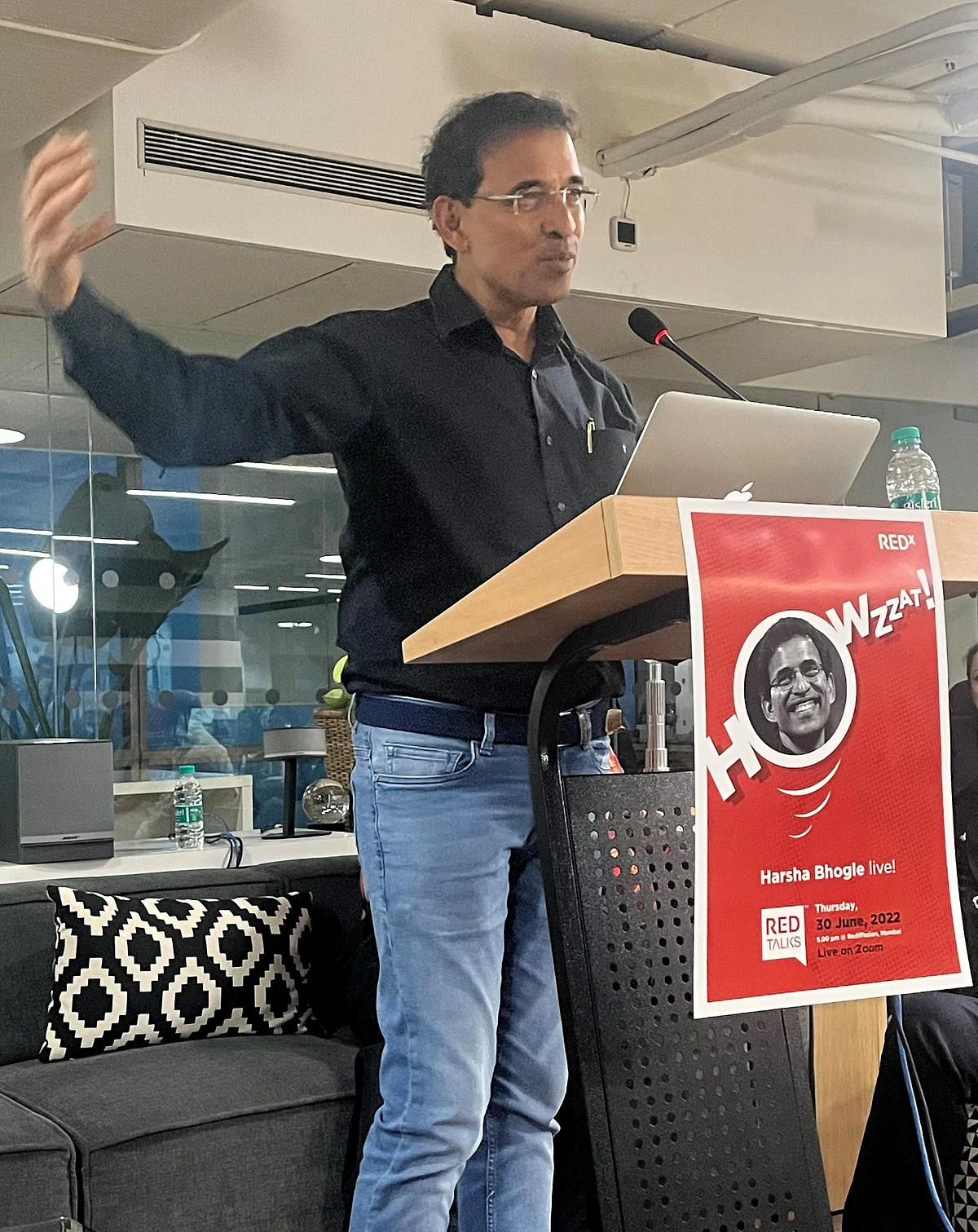
Star cricket commentator Harsha Bhogle | File
SEEING THE REAL HEROES
We had to go through different aspects of the client-servicing job and I met some genuine stars. One of them was Alfred D’Souza. He ran production and would look at transparencies through a little glass prism and say something like ‘There is a yellow cast’.
He would teach us how to look at a transparency to decide whether it was good or not. He taught us to be very vigorous about understanding production. Another rockstar was Prabhakar Tendulkar. He used to look after the studio, and if there was a mistake ever, he was a strict man. They were the heart of advertising.
When I got into television later, my heroes were never the players or the television broadcasters, my heroes were the cameramen and the editors, because I saw the great work they did. ‘Can I be as good as them?’ I thought.
That is where I learnt not to get swayed by blue-eyed glamour boys but to understand that the nuts and bolts are actually held together by other people.
RELATIONSHIPS TO CHERISH
My first ad film for Halo shampoo, with Kitu Gidwani, made me learn what an ARRI 3 camera was. In those days, if you were in client servicing, you had to do the media plan and everything yourself – billing, measuring the material that was being sent out, knowing half tones, quarter tones, colour of artworks… basically everything about the business.
So, if you had worked at Rediffusion for a couple of years, you knew every aspect of advertising. I had to go for the recording of the jingle for the Halo film. I heard Gary Lawyer starting to sing the opening lines of ‘Hey there, Halo girl!’ with Louis Banks on the piano… We could not take too many takes in those days because raw stocks were expensive.
So, you had to rehearse, and be very good at it. Many years later, when I got into television, I learnt to do things in single takes because I knew that if I did too many takes, I would be holding up the editor, the cameraman, everybody... Anyway, at the end of that year, the target for the Rediffusion Mumbai branch was Rs 8 crore – more than any other agency in India. The prize was a 4-day holiday in Kathmandu for everyone with their partners if we achieved it.
But we were falling short. Which is when Garden Vareli stepped in, paid in advance before the ads were even released, so that we could get to Rs 8 crore and go on that holiday. That was what the client-agency relationship was like.
ART OF STAYING RELEVANT
Everyone grapples with one thing: the challenge ‘to stay relevant’. Rediffusion also had to fight with staying relevant. Back then, one reason why I had wanted to join Rediffusion was that I had done my summer placement at a small agency in Bengaluru called Maa South, run by Bunty Peerbhoy. Part of my responsibility was to see how clients saw Maa South.
I discovered then that there was an informal club called the ‘Rediffusion clients club’, because Rediffusion was the agency clients aspired to have.
Later on, there were lean patches but Rediffusion still had that halo around itself. That’s another thing I learnt from Rediffusion that helped me in my profession later on.
In 1990, on my first tour overseas, I was writing for the afternoon newspaper Mid-day. The game ended at about 10.30 pm India time and reports appeared in full detail in newspapers like the Times of India, Indian Express, HT, etc, the next morning. By afternoon, people had read those papers even if they had missed watching the match live on Doordarshan.
So how could I make my match report for an afternoon paper different? I had to write an 800-word article and I asked myself if Kamlesh Pandey was writing this match report, how would he start… because in advertising, you have just 10 words to hook everybody on to the rest of the copy.
That day, India had won the toss and put England in to bat, and England had made 390 for 2 or 3. Graham Gooch was 190 not out. To hold people's attention, I wrote Azharuddin had won the toss and his tehzeeb had mandated the ‘Huzoor pehle aap’ to let England bat.
I also remembered my father telling me, ‘It is not up to people to read what you write, it is up to you to get people to read what you write’. The fact that I had come from advertising helped me enormously. Later, when I got into freelancing, I had to learn to write a newspaper article in 300-800 words, a magazine article in 3,000 words or do a match report on television.
My only chance of survival in the profession was in giving my 100% every single time and praying it was good enough. I also learnt that if you give a 100%, do your best, and it’s still not good enough, it's not a crime, because that’s only how good you are. But if you don't deliver what you are capable of, that's a crime.
STEP OUT WITH HARSHA
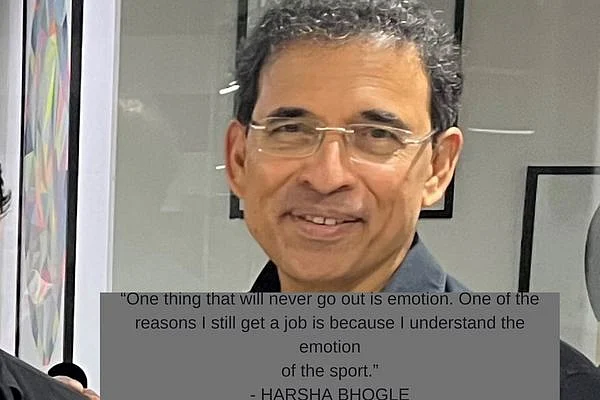
Star cricket commentator Harsha Bhogle began his career as an adman, joining advertising agency Rediffusion in 1985 as a campus recruit from IIM Ahmedabad. He worked on Halo, Palmolive, Charmis, Bush and a few smaller brands like Bakelite Hylam, Warner Hindustan, Sloan’s and Smaash during his stint at Rediffusion.
Bhogle, arguably the face of Indian cricket, was rated as the possessor of the sexiest voice on radio in Australia in 1992 and has commented on hundreds of Test matches, one-day internationals and T20 matches. His columns are widely read and a selection of them has been put together in a book called 'Out of the Box’.
His video blogs ‘Step out with Harsha’ are quite popular and he has over a million followers on Twitter. Bhogle has even featured in ads himself, appearing in brand commercials for Pepsi, Hero Honda, Airtel, Tata AIG, Sugarfree, Vicks and brand promotions for Vodafone, Cadbury, IBM and many others.
